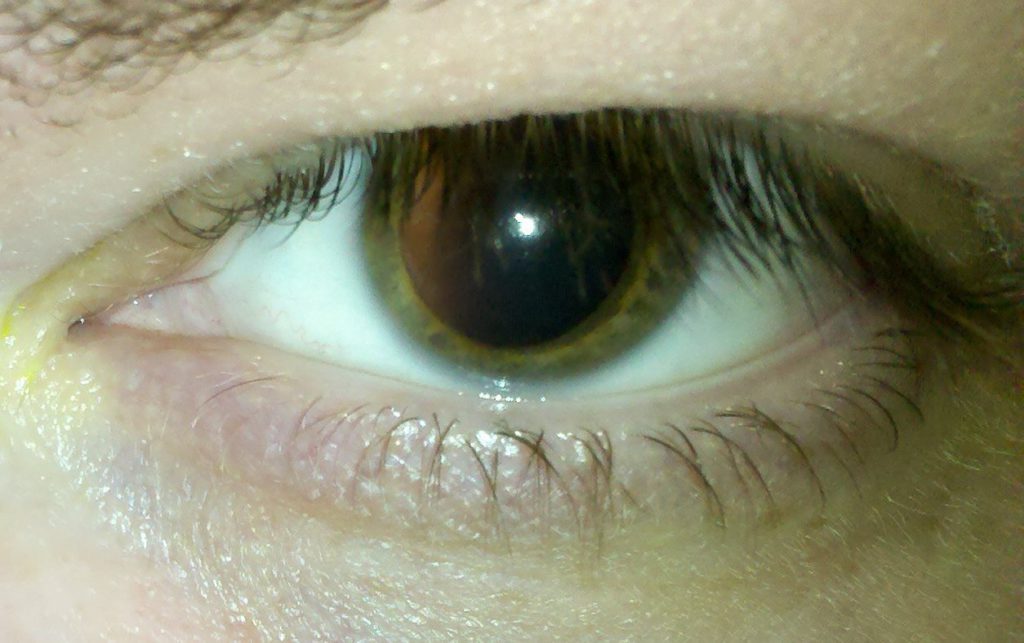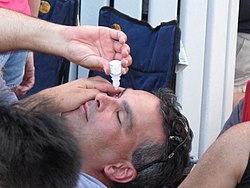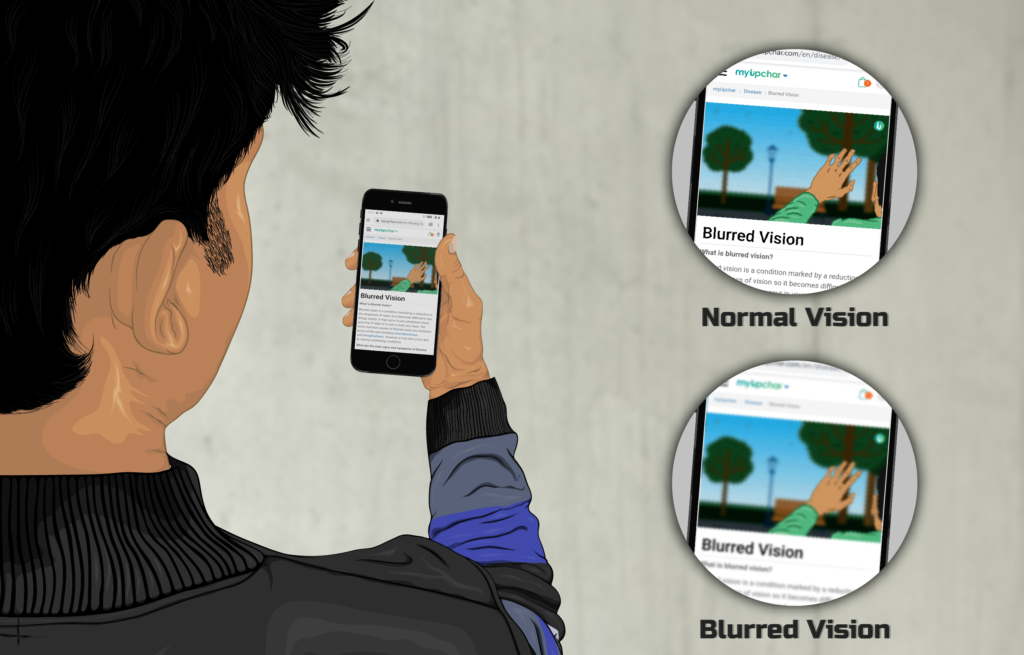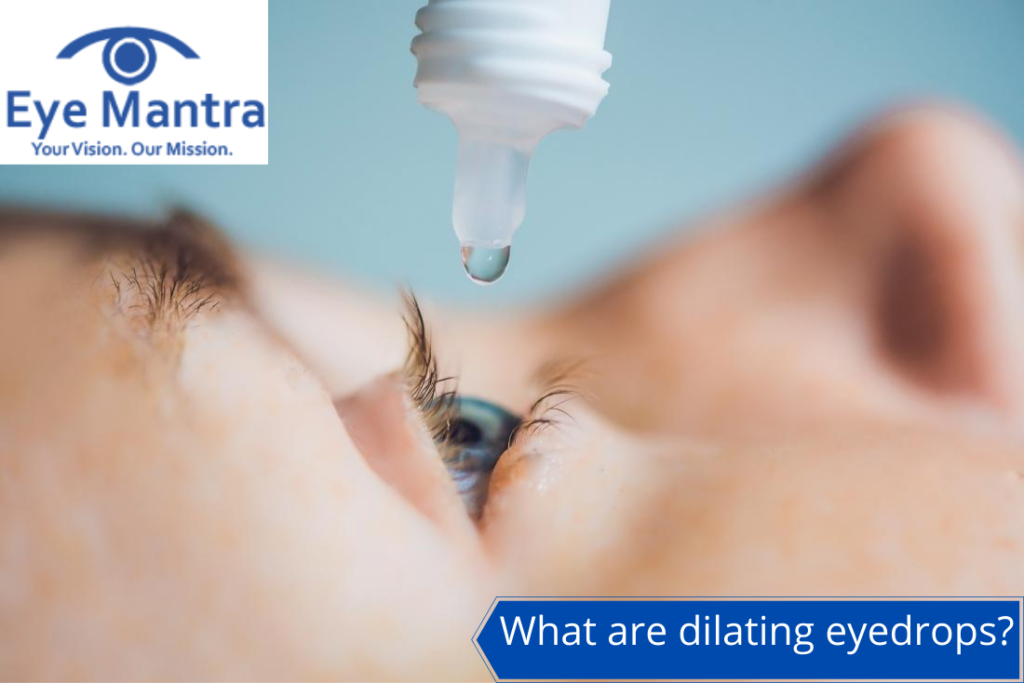Contents
Need For Dilating Eyedrops
Your eyes have iris and pupil present. The pupil is the light-sensitive part that regulates its opening and closing based on the light intensity present in the environment. When high-intensity light is present the pupil closes making a very small opening so that less light can pass through the iris and when low-intensity light is present then it dilates itself in order to make more light enter the iris. The dilating eyedrops are used to dilate the pupil and to increase the time period for the dilation in order to study the structure of the iris and pupil.

Use of Dilating Eyedrops
Dilating eye drops are useful for doctors as they help them to diagnose the disease at the earliest possible stage. Diseases like diabetes, high blood pressure, macular degeneration, retinal detachment, and glaucoma can be detected easily with the help of dilating eye drops. Dilating eye drops make vision blurry and cause light sensitivity for a short period of time.
Risk Factors Related To Dilating Eyedrops
There are some factors that are responsible for determining whether you need dilating eye drops or not. These factors include your age, eye health, and the reason you are seeking eye evaluation. As the age progresses your eyes become more prone to eye diseases so it is advised to get an eye dilated exam done after a certain age. Having any eye condition or if you were diagnosed with any possible eye disease then it would be necessary for an ophthalmologist to study your eyes using dilating eye drops. If you are having some symptoms of disease then at the initial stage it may be necessary to undergo an eye dilation exam. And if your condition improves and has no new symptoms then in follow-up visits there would not be any requirement of dilating eye drops.
Procedure of Using Dilating EyeDrops
The dilating eye drops may sting a little bit and would cause blurry vision. You may also experience a bitter taste of medicine in your mouth. You don’t need to panic if your eyes are blurry as it is the effect of the eyedrops and will ease out once the effect of eyedrops wears out.

- Process
Dilating eye drops is a simple process. In this process dilating eye drops would be put in your eyes. they would ask you to wait for 15-20minutes after giving you dilating eye drops. Once your wait is over then the doctor would shine a bright light in your eyes to study the internal parts of the eyes. They may ask you to move your eyes while the eye examination is performed. Your doctor during the eye exam would be able to see the macula, optic nerve, and retina of your eyes. An ophthalmologist would look for any damage caused to the nerves due to high blood pressure or would examine your retina to see any signs of damage. The doctor is able to detect other eye conditions including retinal detachment, diabetic retinopathy, macular degeneration, and other eye diseases.
- After-effects of Eye Drops
After getting an eye dilating exam done you may feel sensitivity towards the light which is normal. You can wear sunglasses as they will provide you a comfortable environment. You should come with someone while undergoing an eye dilating exam as this exam would make your vision blurry and you would not be able to drive properly in this condition. The effect of the dilating eye drops normally wears out in an hour or two and your vision will go back to normal and you would no longer have light sensitivity. In children and in some adults the effect of dilation may last longer than hours and may take a whole day for its effect to wear out.
Diseases Diagnosed With Dilation
Dilating eye drops are generally used before conducting a comprehensive eye exam. Using the dilating eye drops various eye conditions and diseases can be diagnosed and then treated.
Diabetic Retinopathy
Diabetic retinopathy is a disease that occurs due to abnormal growth of blood vessels in the retina. It causes the blood vessels to present in the retina to swell and leak. The fluid leaking from the blood vessels fills the eye cavity and causes distorted and blurred vision. If not treated on time then it can lead to permanent vision loss.
Macular Degeneration
Macular degeneration also occurs due to abnormal growth of the blood vessels and deposition beneath the retina. There is no cure for the disease but if detected on time then treatment to slow its progression is provided.
Glaucoma
Glaucoma is a disease that occurs due to damage to the optic nerve. The optic nerve is a nerve that links the eye to the brain. If any damage or degradation of the optic nerve occurs then it can lead to blindness.
Diabetic Retinopathy
Diabetic retinopathy can also be detected using the eye dilating exam. It is a disease that is caused due to diabetes and can lead to permanent blindness if not controlled in time.
Cataracts
Cataracts are the cloudy area developed in your eyes as you get older. It is also detected using the eye dilating exam and can be treated by performing the surgery.
Precaution While Using Dilation
- While getting dilating eye drops make sure you are accompanied by your family member as you won’t be able to drive back home alone.
- Dilating eye drops cause a little stinging effect in your eyes and generally last for a minute or two. If the stinging persists then inform your doctor about it.
- As there is an increase in the light sensitivity of the eyes it is important for you to carry sunglasses and not look at the sun directly as it may damage your retina. Your pupils usually retract when there is the presence of high-intensity light to protect eyes from any damage. The dilating eye drops stop this activity of the pupil so, it becomes important to not look at the sun directly.
- Avoid viewing any screen as they emit blue light which is also harmful to your eyes when they are dilated. Viewing screens when your eyes are still dilated will make them susceptible to retinal injury.
- Avoid reading small fonts as they may cause eye strain and headache. The blurry vision caused due to dilating eye drops will make it difficult for you to read.
- The effect of dilating eye drops generally wears out after 4-6hours. In some people, it may wear out early and in some, it may take a day to wear out.
- Be pre-informed about the eye dilating exam and take necessary precautions and do not panic if your vision becomes slightly blurry.




